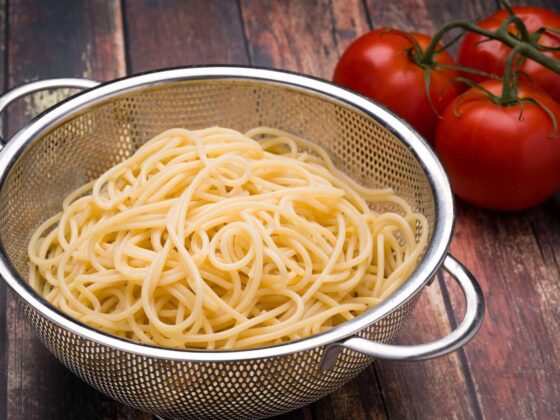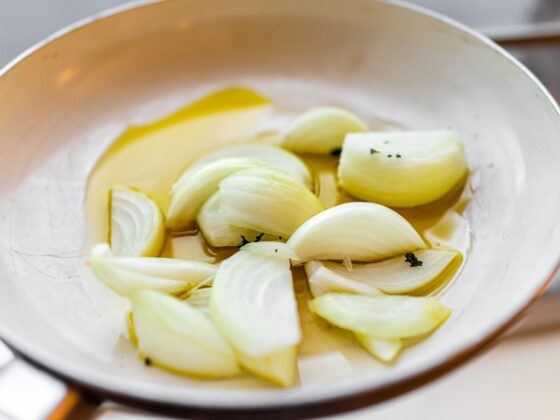Dishwashers are more than just a convenience; they are a time-saving essential in modern households. By efficiently cleaning dishes, cookware, and utensils, dishwashers free up valuable time that can be spent with family, pursuing hobbies, or simply relaxing.

Moreover, they contribute to a cleaner and more hygienic kitchen environment by effectively removing food particles and bacteria, reducing the risk of cross-contamination.
Additionally, dishwashers use less water and energy than hand washing, making them an eco-friendly choice for households looking to reduce their environmental footprint. In essence, dishwashers streamline kitchen chores, enhance cleanliness, and promote sustainability, making them indispensable appliances in today’s busy lifestyles.
Meaning of the word “Dishwasher Safe”
“Dishwasher safe” is a term used to indicate that an item can be safely cleaned in a dishwasher without being damaged or deteriorating. This designation assures consumers that everyday kitchenware such as:
- China and ceramic dishware
- Hard plastic items
- Stainless steel utensils
- Drinking glasses
- Sturdy wine glasses
- Glass and stoneware baking dishes
- Silicone
- Metal utensils
- Items that can withstand the heat, water pressure, and detergents typically used in dishwasher cycles without experiencing adverse effects.

Items that are “Not Dishwasher Safe”
Here is the list of items that are “not dishwasher safe”:
- Antique, hand-painted, and metal-rimmed china
- Thin plastic items
- Cast iron, non-stick, and copper pots and pans
- Crystal and delicate glassware
- Knives with wooden handles
- Wooden items
- Insulated mugs and containers
- Silverware

Some basics about commonly used items and their relationship with dishwasher
- China in the Dishwasher: Proceed with Caution While some modern china may be labeled dishwasher safe, antique or hand-painted china is generally not recommended for dishwasher use. The high heat and harsh detergents can damage delicate finishes and lead to chipping or cracking.
- Plastic: Know Your Type Hard plastic items are typically safe for the dishwasher, but thin plastic items may warp or melt. Be sure to check the item’s label and opt for hand washing if unsure.
- Stainless Steel: A Dishwasher’s Best Friend Stainless steel utensils and cookware are usually dishwasher safe due to their durability and resistance to corrosion. However, certain finishes or coatings may require hand washing for maintenance.
- Pots and Pans: Keep Them Out Avoid putting cast iron, non-stick, or copper pots and pans in the dishwasher. The harsh detergents and high heat can strip seasoning, damage coatings, and cause discoloration.
- Fragile Glassware: Handle with Care Delicate crystal and fragile wine glasses should be hand washed to prevent breakage or damage. The dishwasher’s heat and water pressure can be too harsh for these items.
- Baking Dishes: Dishwasher Safe Glass and stoneware baking dishes are generally safe for the dishwasher. However, avoid sudden temperature changes by allowing them to cool before washing.
- Silicone Utensils: Dishwasher Friendly Silicone utensils are typically dishwasher safe and can withstand high temperatures. Check the manufacturer’s recommendations for specific products.
- Knives: Keep Them Sharp It is best to hand wash knives to preserve their blades and handles. The dishwasher’s heat and moisture can damage the blades and cause rusting, especially for knives with wooden handles.

- Wooden Items: Hand Wash Only Wooden utensils and cutting boards should be hand washed to prevent warping, cracking, and deterioration. Avoid the dishwasher to maintain their quality.
- Insulated Mugs: Handle with Care Insulated mugs and containers are not dishwasher safe due to the risk of damaging the insulation. Hand wash them to maintain their performance.
- Silverware: Gentle Care Required Silverware should be hand washed to prevent tarnishing and damage. Harsh detergents and heat can accelerate tarnishing and dull the silver over time.
- Beyond Dishes: Other Dishwasher-Friendly Items Besides dishes and utensils, you can clean items like microwave turntables, refrigerator shelves, plastic toys (if dishwasher safe), pet dishes, and even some baseball caps in the dishwasher. Always check manufacturer recommendations for suitability.
Commonly used symbols to identify items that are safe to use in dishwasher
Common dishwasher safe symbols found on kitchenware and utensils include:
Dishwasher Safe Icon: This symbol typically features a dish or glass with water droplets above it, indicating that the item is safe for dishwasher use.
Rack Icon: Some manufacturers use a symbol resembling a dishwasher rack to signify dishwasher safety.
“Dishwasher Safe” Text: Items may simply be labeled with the text “Dishwasher Safe” to indicate their compatibility with dishwasher cleaning.
Temperature Tolerance: Some symbols include temperature indicators, such as maximum and minimum temperature ranges, to ensure the item can withstand dishwasher heat cycles.
Utensil in Water: A symbol showing a utensil submerged in water or waves may indicate dishwasher-safe status.
Cup with Water Drops: This symbol, often found on drinkware, indicates that the item is safe for dishwasher cleaning.
Checkmark or Tick: A simple checkmark or tick may be used to signify dishwasher safety.
International Dishwasher Symbol: The international symbol for dishwasher safety is a square with plates or dishes inside it, often accompanied by water droplets.

These symbols may vary slightly depending on the manufacturer or region, but they generally convey the same message of dishwasher compatibility. Always refer to the manufacturer’s guidelines and care instructions for specific details regarding dishwasher use.
Do dishwashers come in different sizes?
Dishwashers come in various sizes to accommodate different kitchen spaces and household needs. The most common dishwasher sizes include:
- Standard Size: Standard dishwashers typically have a width of 24 inches, a height of 34 inches, and a depth of around 24 inches. These are the most common size found in kitchens and can typically hold up to 12 to 14 place settings.
- Compact Size: Compact or apartment-size dishwashers are smaller than standard models, with a width of around 18 inches. They are designed for smaller kitchens or households with limited space. Despite their smaller size, they can still accommodate a considerable amount of dishes.
- Drawer Dishwashers: Drawer dishwashers are designed to fit into cabinets or under countertops and come in single or double-drawer configurations. They offer flexibility in terms of loading and can be a great option for smaller kitchens or for those who want the convenience of having separate wash cycles.
- Countertop Dishwashers: Countertop dishwashers are even smaller and are designed to sit on top of a countertop or other flat surface. They are ideal for small apartments, RVs, or for households with minimal dishwashing needs.
- Portable Dishwashers: Portable dishwashers are on wheels and can be moved around the kitchen as needed. They connect to the kitchen faucet for water supply and drainage and are a good option for renters or those who do not want to install a permanent dishwasher.

The Final Call
In conclusion, understanding what “dishwasher safe” means and knowing which items can safely go in the dishwasher is essential for maintaining the longevity and performance of your kitchenware. While many everyday items like stainless steel utensils, glassware, and ceramic dishware are dishwasher safe, it is important to exercise caution with delicate or specialty items like antique china, crystal, and wooden utensils.
By following manufacturer guidelines, checking for dishwasher-safe symbols, and considering the material and construction of your kitchenware, you can ensure that your dishwasher runs efficiently and your dishes come out sparkling clean every time. So, next time you load up your dishwasher, do so with confidence, knowing that you’re taking proper care of your kitchen essentials while making cleanup a breeze.









